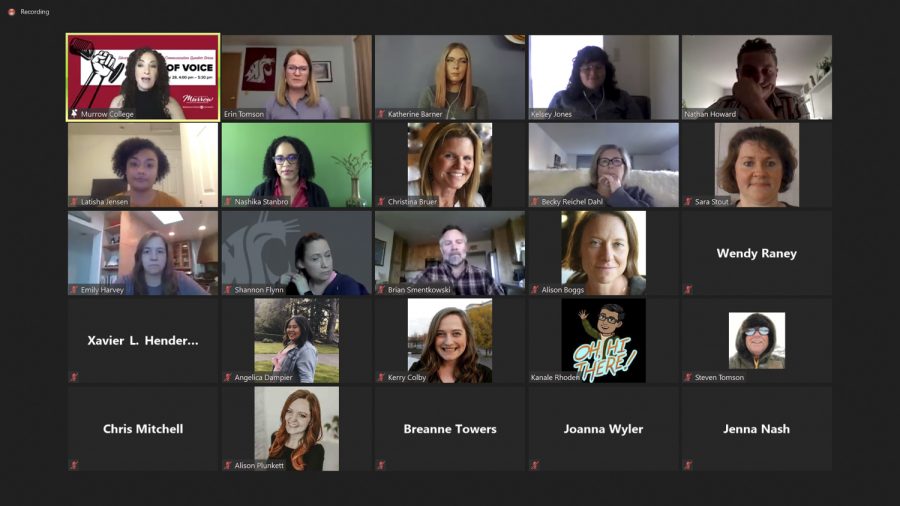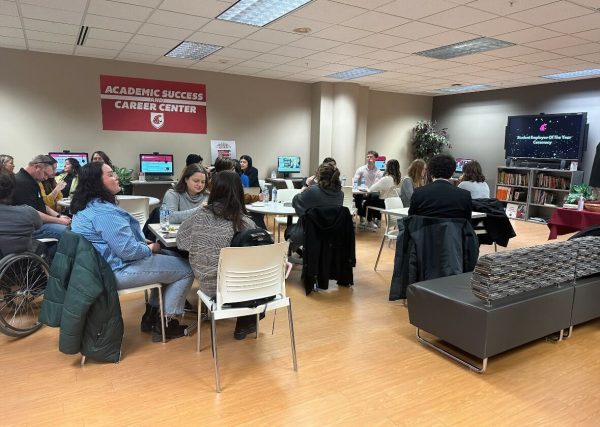Alumni discuss BLM protest coverage
Objectivity vital to protest coverage; no room for bias in news reporting
KHQ news producer said reporters must be mindful of word choice when writing about the Black Lives Matter movement.
October 29, 2020
Recent Edward R. Murrow College of Communication graduates discussed their experiences reporting on the Black Lives Matter movement during a speaker series on Wednesday.
It is white people’s responsibility to find solutions to end white supremacy, said Kelsey Jones, Shriver Housing navigator at Neighborhood Legal Services of Los Angeles County.
The BLM movement is a direct result of people who continue to perpetuate racism consciously and subconsciously, Jones said.
Reporting on the movement as a white man can be challenging, said Nathan Howard, a freelance photojournalist based in Portland, Oregon. Howard said he sees the movement from a different perspective than somebody who has experienced racism firsthand.
Taking photos during protests in Portland is hard because there are hundreds of people and pictures must show what is happening clearly, Howard said.
It is difficult for photojournalists to report while not censoring the protest events, he said. Peaceful protesters get grouped in with violent people who do not have the same goals, but it is important to show both groups, Howard said.
It is also challenging to report on the BLM movement objectively, said Katherine Barner, multimedia producer at KHQ Local News.
Word choice can make a difference in how an audience receives a message, Barner said. When discussing agitators in the news, that is not a reference to protesters, she said. It is a reference to the people who get violent in response to the protest.
Barner, who works in Spokane, said the majority of people in the city are conservatives. This means word choice is imperative so all members of the public, conservative or otherwise, can understand what is crucial. Bias cannot be part of the picture, she said.
Latisha Jensen, reporter at Willamette Week, said she reported on a BLM protest in Portland for her first assignment.
Marginalized communities are a critical concern in Portland because the city is predominantly white, she said. Most of the articles she writes involve Black people’s experiences versus white people’s experiences living in Oregon, especially in Portland.
Xavier Henderson, WSU alumnus, concluded the panel by saying that representation is important in society. People should be able to read stories about people who look like them.
“We’re not ever going to be able to understand somebody’s plight if we don’t have empathy,” Henderson said.






















